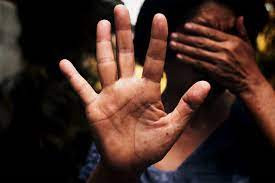
TOMORROW, the world marks the beginning of 16 Days of Activism Against Gender-Based Violence (GBV), held annually between November 25 and December 10.
This year, the campaign will run under the theme “Orange the World: UNITE! Activism to End Violence Against Women and Girls”.
Zimbabwe, like many other countries worldwide, grapples with deeply rooted GBV issues.
Despite strides in various sectors, women and vulnerable populations continue to face alarming rates of abuse, both physical and psychological. Domestic violence, sexual assault and harmful traditional practices persist, casting a dark shadow over the lives of many.
According to the United Nations Population Fund (UNFPA), one in three women in Zimbabwe have experienced physical violence and one in four women have experienced sexual violence since the age of 15. These are not just shocking but are alarming statistics.
In line with this year’s theme, with support from the Friedrich Naumann Foundation for Freedom’s Womentorship Programme, we launched a book titled Coming Out of the Shadows: The Untold Stories of Sexual Harassment in Zimbabwe’s Media a fortnight ago.
To shine a light on this insidious problem that has pervaded every corner of our society today, the 52-page book collects accounts of journalists, from different generations, as they share their heart-breaking stories about sexual harassment and sexual assault. This is a first of such an initiative in Zimbabwe.
The reason for this is simply fight this endemic social issue. Sexual harassment is a form of violence often ignored, triavialised or normalised.
- Ngozi Mine’s young mothers suffering in silence
- Ngozi Mine’s young mothers suffering in silence
- Village Rhapsody: Engage men to end gender-based violence
- Chics’ Galaxy: Takawira fights in the girl child’s corner
Keep Reading
The book is part of the campaign to protect and serve as a guide to not only female journalists, but also women and girls in general, on how to deal with sexual harassment when it happens.
Compiling and editing the stories was a trigger for me. I realised at that moment that we should never refer to ourselves as survivors.
We are not survivors, we are victims of sexual harassment, sexual assault, rape and domestic violence, who are healing, but whose scars will never go away.
It opened up the wounds. Yes, I am still standing! Yes, I found a way of not allowing what happened to me to take away what I love so much! I refused to give power to the abusers.
Through the Womentorship Programme, which brings together young and upcoming female journalists, we created safe spaces to share our stories. We cried, laughed, hugged and we were each other’s keeper.
We created a sisterhood that will live forever.
That is what Zimbabwe needs. For far too long, we have ignored and downplayed GBV, perpetuating a culture of silence and suffering.
Abusers have been allowed to act with impunity. Families and society at large have protected and continue to protect abusers. We have normalised GBV and we tell the girl child that that forms of GBV like domestic violence are acceptable in society. We victim blame. This is why it cuts across the country and class lines – from the poorest communities to those that live in Zimbabwe’s richest suburbs.
It is high time we shine a light on this dark issue and chart a path forward to curb all forms of GBV.
The urgency of addressing this pervasive issue looms large. The current state of GBV in Zimbabwe reflects a pressing need for comprehensive action from both the government and society at large.
While the Zimbabwean government has taken steps to address GBV, there is a need for sustained and targeted efforts.
Legislation plays a crucial role, and enforcing and strengthening laws is paramount. Adequate funding for support services, such as shelters and counselling, is essential for victims to rebuild their lives.
Additionally, educational programmes aimed at changing societal attitudes and norms should be prioritised.
Beyond legislative measures, society plays a pivotal role in combating GBV. Breaking the silence surrounding abuse is fundamental to creating a supportive environment for victims.
Community awareness campaigns and education initiatives can challenge harmful stereotypes and foster empathy.
It is time for Zimbabwe to collectively confront this issue head-on, empower victims to report without fear, and create a culture of respect and equality.






